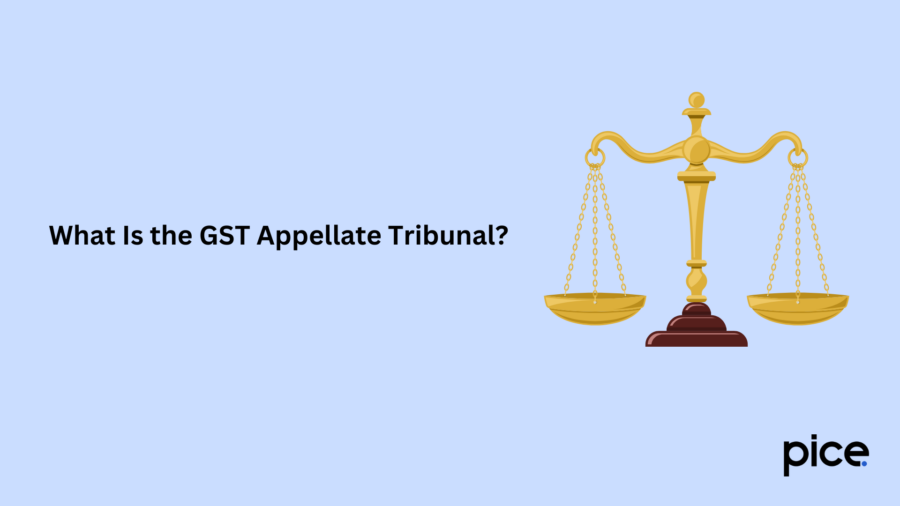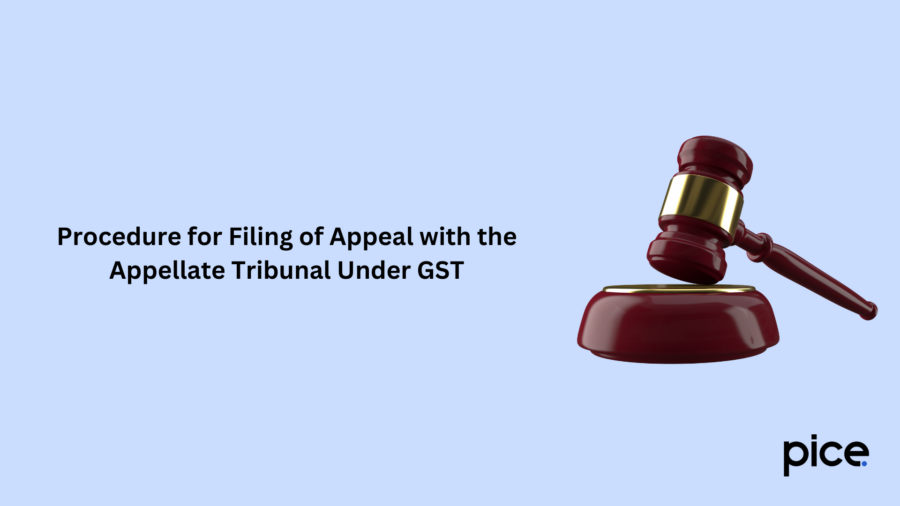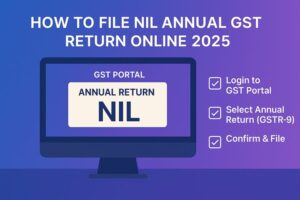What Is GST Appellate Tribunal (GSTAT)? Rules & Eligibility
- 30 Jan 25
- 6 mins

What Is GST Appellate Tribunal (GSTAT)? Rules & Eligibility
Key Takeaways
- GSTAT resolves GST disputes at the second appeal level for transparency.
- Comprises multiple benches, with the National Bench in New Delhi.
- Taxpayers and revenue departments can appeal unsatisfactory decisions.
- Filing requires documents, a deadline, and a 20% fee on the disputed amount.
- Refunds include interest if the appellant wins and faces delays.
According to a recent report published on November 18, 2024, by Revenue Secretary Sanjay Malhotra, the Goods and Services Tax Appellate Tribunal (GSTAT) is expected to reach full operational capability by the end of the financial year 2024-25. From its inception, this principal bench will look to settle various disputes related to the GST Act.
In this blog, you can learn in detail about the GST Appellate Tribunal, refer to the process for appealing to the tribunal, and walk through other related details.
What Is the GST Appellate Tribunal?

All registered taxpayers must understand what the GST Appellate Tribunal actually means before they move further to grasp the details. The GSTAT signifies a specialised body aimed to dissolve GST-related problems that move to an appellate level.
GSTAT is set to become the forum of second appeal within the GST Act. However, it is the very first common forum designed for dispute redressals between the states and the central government. It is a unified forum to establish transparency in dispute resolutions and enforce quicker action for cases. At present, the GST Appellate Tribunal is in New Delhi.
GST Appellate Tribunal Composition
The GST Appellate Tribunal comprises a National bench, state benches, regional benches, and finally specific area benches. Currently, you can find the National Bench in New Delhi, which is responsible for handling appeals involving cases that deserve national importance. This bench is composed of a judicial member, a technical member, and a president.
On the other hand, the State and Regional Benches handle cases that appear within their respective administration areas. Each of them has a similar composition.
As there is a bit of diversity in the composition, it ensures that the Tribunal has the necessary balance of technical and legal expertise to ensure justice throughout the country.
Who Can Appeal to the GST Appellate Tribunal?
Any GST-registered taxpayer or relevant revenue department who is dissatisfied with the verdict passed by the first appellate body under the GST Act can raise an appeal to the GSTAT. It covers cases involving tax assessments, refunds, demands, penalties, and even input tax credit (ITC).
Individuals, tax officials, and designated business representatives can file these appeals to seek redressal against the appellate authority’s decision. In such cases, the GSTAT acts as the next level, and thus taxpayers get a fair hearing, and consequently disputes are addressed as per the GST laws.
GST Appeal Fees
A fee has been set to file an appeal to the GST Appellate Tribunal. If you want to proceed with a dispute resolution, you need to pay this amount in full along with the applicable tax, interest, fine and penalty as mentioned in the original order. Finally, if there are any disputes, the applicant must settle 20% of the sum as a fee for raising the appeal.
Procedure for Filing of Appeal with the Appellate Tribunal Under GST

Suppose a taxpayer is not satisfied with the decision made by the First Appellate Authority. In that case, an appeal filing for a revision can take place following the procedure discussed below:
Step 1: The person must obtain a certified copy of the order passed against which they wish to file an appeal.
Step 2: Next, they must prepare the appeal, ensuring that all the supporting evidence and required documents are ready.
Step 3: Then, the appeal needs to be filed within the predefined deadline, and for this, the applicant must pay the prescribed fee.
Step 4: After this, the concerned party is required to attend the hearing as specified by the Tribunal. Here, the counterparty will also be present for the argument.
Step 5: Finally, the candidate is required to wait for the tribunal's judgment, which will be rendered after hearing from both parties.
Will Every Appeal Be Accepted?
The GST Appellate Tribunal will not entertain every appeal filed by taxpayers. They are given the right to assess the seriousness of the issue and either reject or accept appeals depending on the merits of a particular case.
Appeals may be turned down if the bench believes that moving forward with dispute resolution is pointless or if the appeal has been filed beyond the due date. Also, if the concerned taxpayer does not comply with the guidelines while appealing, then also their request can be rejected. Finally, if the requisite fee is not paid on time then the appeal can be dismissed.
Interest Payable on Refund of Fees
If you are an appellant and eventually win the case before the GSTAT, you will get a refund for the amount paid. Moreover, if you face delays in getting the refund, then the council will offer you interest on the refund sum. This compensation accounts for the time during which their money was held by the taxation authorities.
Thus, as you can see, the appellate process is completely transparent and fair. Also, the conditions for interest payment and respective rates are mentioned via the GST laws. However, these rules can vary based on specifics.
Conclusion
The GST Appellate Tribunal is believed to consistently play a crucial role in resolving disputes under the GST laws. As far as business owners are concerned, they must spend sufficient time knowing the various processes of GSTAT.
It will help them with efficient tax management and compliance responsibilities. Still, if you face problems navigating legal challenges while running your business, you can seek help from professionals to lessen unnecessary burdens.
💡If you want to streamline your payment and make GST payments, consider using the PICE App. Explore the PICE App today and take your business to new heights.
 By
By 

















